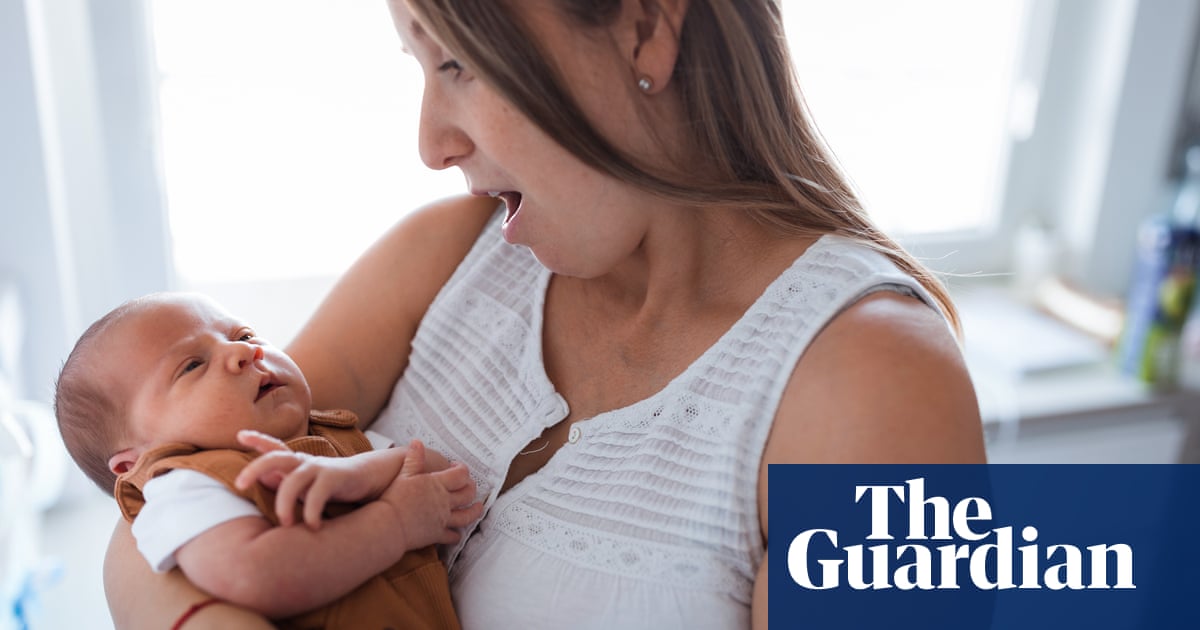
The upward intonation, the guttural “ck” and even the cheeky comeback to win the argument: at just 19 months old, baby Orla has mastered the crucial elements of speaking like a scouser.
Impressively, the toddler who featured in a viral video this week appears to have done so without the need for actual words.
A clip posted on TikTok, and now viewed more than 20m times, shows Orla babbling in a Liverpudlian accent as her babysitter, Olayka, tries and fails to coax her into taking a nap. Scientists say that the cute exchange is also a vivid illustration of the processes by which babies acquire language – and the surprising role of accents.
Babies are so tuned in to the musical ups and downs of speech that even as newborns they cry in distinctive ways that reflect the languages that they have heard while in the womb.
In one 2009 study, Prof Kathleen Wermke, a pioneer in the field of speech development at the Würzburg University in Germany, found that French infants tend to wail on a rising note and German babies favour a falling melody and other patterns have been seen for Mandarin, Swedish and African languages. “When I started 40 years ago, if I told people I was recording babies crying and making high-pitched sounds they’d look at you and think ‘Is this really science?’,” she said.
Crying, once viewed merely as a distress siren, is now viewed as part of the array of pre-speech sounds that pave the way for future communication. “That’s how language comes into the brain of babies,” Wermke said. “They learn the musical features of the surrounding languages. The music is always first, it’s like a scaffold for the words.”
“It’s important to make parents recognise that any sound a baby is producing is part of his or her way into language,” she added. “We should admire that and listen to them – even if they’re sometimes in the mood to cry.”
The advent of machine learning has allowed researchers to analyse huge datasets of home-recorded infant and toddler sounds and this shows, as many parents would recognise, that babies don’t all acquire language in the same way. Some, like Orla, have advanced mastery of the intonation and music of language before they can articulate words.
“They have just the contours of the language that they will populate it with words,” said Prof Caroline Floccia, a developmental psychologist at the University of Plymouth. “Others start with isolated words and then they will construct sentences from that. Then you can have plenty of kids who are in the middle.”
Understanding the different patterns of how children acquire language could improve the ability to identify those who fall outside the normal range, possibly due to autism or developmental language disorder (DLD), and who could benefit from very early intervention.
Orla is also typical of research showing that children understand language before they can speak it, a phenomenon known as the “comprehension-production asymmetry”. Besides a definite “no” and “I wanna play”, the defiant toddler has few recognisable words, but there is no doubt she understands the gist of the conversation.
“Kids can definitely understand more than they can say,” said Dr Andrew Jessop, a psychologist at the University of Liverpool. Jessop’s lab has demonstrated this by showing that an infant’s gaze will switch to look at an object being named, before they can name the object themselves.
“Part of it might just be that their vocal apparatus isn’t developed enough,” he said. “Or they need more time to build up that knowledge. It’s a bit like in an exam how it’s much easier to recognise the right answer in multiple choice than to write an essay from scratch.”
There is also more to communication than words and Orla has clearly grasped the social element of conversation. Prof Kate Watkins, a neuroscientist who investigates language at the University of Oxford, said: “She’s very good at turn taking, she’s really good at eye contact, all of these pro-social things that are really important.“She’s really engaged and really communicative.”
This back and forth of conversation has been shown to have huge benefits for babies’ acquisition of language. One recent study showed that when parents were coached in how to engage with their infant, their babies babbled more and had more words by 14 months than those who were not trained and there are other studies showing that these benefits carry forward.
“One of the only things that we’ve found that can really boost language development is child-directed speech,” said Jessop. “The effect is so strong that we can bring a mum or dad into the lab and the parents that say the most words, their babies’ vocabulary grows at a faster rate and that benefit lasts years into the future.”
“It’s kind of like you’re being their language tutor, so taking the time to really talk to your baby is so important.”












